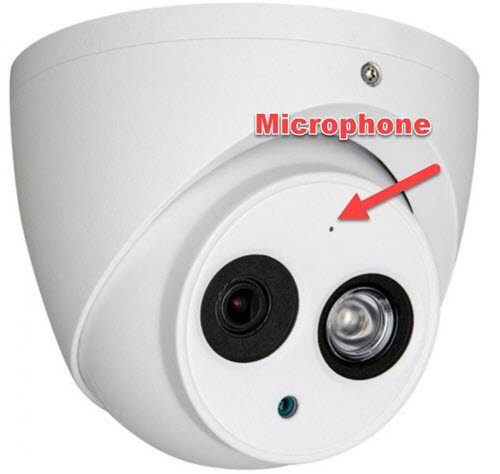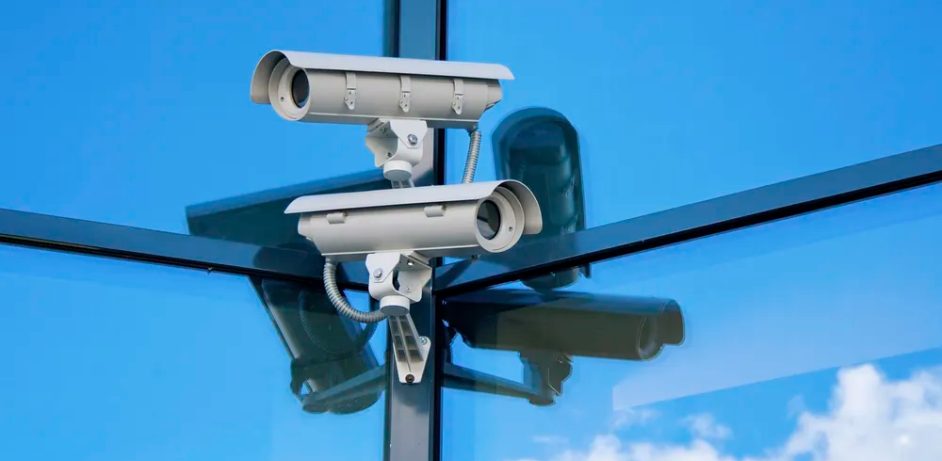Are you wondering whether recording audio via a secured camera is legal?
In many states, it is legal to record audio on security cameras. However, there are some restrictions on when and how you can do so.
Generally, you are not permitted to record audio without consent, but some exceptions allow you to do it legally. You should be present in person or using a two-way audio system, even when permitted.
Security Cameras with Audio
Many security cameras have an embedded microphone for recording audio and can record audio and video together.
The audio may be one-way or two-way. Both types can capture audio from the area where the camera is situated, but only the two-way types can send audio messages from the viewer. Audio capture is another feature: the ability to record the audio.
Importantly, as far as the law is concerned, a security camera is a recording device, so the law for recording devices usually applies to security cameras.
How far security cameras can record audio depends on the camera’s capability and environmental conditions while recording. Good audio-capable cameras can record audio up to several hundred feet away, but distance will be reduced according to the extent of noise and other interference in the way.
How to Tell if Audio is Being Recorded
It’s not easy to tell if a security camera is recording audio because the microphones are often barely noticeable.
Look for a small hole in the security camera’s housing, or watch the recorded footage to see if you can hear audio. Otherwise, you would have to ask the owner directly to find out, or if you can see the model number, search online for its audio specifications.

The legality of Audio Recording
Although video recording is common, the legality of audio recording differs in places.
To know whether recording audio via a security camera is legal, you must know the law on recording devices and wiretapping laws in your country, province, or state.
Those that allow it only does so if you alert everyone about the recording by at least putting up a sign, and some require you to inform the people whose voices will be recorded verbally. In contrast, others allow it under certain conditions.
The exceptions for audio recording do not usually permit it in private spaces, such as bedrooms, restrooms, and bathrooms. The fines can be hefty if audio is recorded in them, whether knowingly or unknowingly.
You might get away with using audio if the circumstances are such that your life is in danger and you need to record to obtain evidence. But again, it would be better to consult your lawyer.
In the US, UK, and Australia
The law on recording audio varies in places, but generally, you may find that it is legal to do it as long as you don’t break any other related law.
However, obtaining consent where possible and being present in person or via a two-way audio system is safer. Exceptions are typically confidential conversations, recording audio in private areas, eves-dropping, wiretapping, and recording for malicious purposes. These are all grey areas and in many places, illegal.
In the United States and the United Kingdom, recording audio is mostly permitted with exceptions, such as the ones mentioned above. In Australia, it is necessary for at least one party to the conversation to give consent. The type of consent required in the US differs by state.
Here is an example of the law applicable in Virginia:
“Virginia remains a one-party consent state for audio recording in 2022; however, you cannot use the recording as evidence in a court of law if all parties did not know the recording was taking place. You also cannot record both video and audio of a person without that person’s consent. Video surveillance remains legal so long as it is with the intent of securing your property.”
[Gazzola, 2022]
Types of Consent
There are usually two types of consent regarding the law on recording audio: one-party and two-party consent.
Some laws require obtaining permission from at least one party, while others require permission from both. This does not mean one or two persons; rather, one or both parties are engaged in the conversations.
In the USA, most states have a one-party consent law on recording audio, and there are 12 states where two-party consent is required:
- California
- Connecticut
- Delaware
- Florida
- Illinois
- Maryland
- Massachusetts
- Montana
- Nevada
- New Hampshire
- Pennsylvania
- Washington
Types of Laws
Besides knowing the law on recording devices and wiretapping laws, if you’re an employer or manager, you will also need to know how the audio recordings will be treated under the Freedom of Information Act.
This federal law in the US grants people the right to access certain information from federal agencies. If the audio recordings are federal agency records, they may be subject to this law and can be released to the public upon request.
Location of the Camera
The legality of using a security camera to record audio can also differ according to where it will be used.
Your home is yours, so you are generally free to use an audio-equipped security camera unless there are internal tensions.
An institution or office-type workplace is also a controlled environment, but many more people are involved. You would be expected to inform others here, but private places like restrooms and toilets would not be permitted.
The audio recording in a public place is likely more controversial because many unsuspecting strangers are involved. Here, you would be expected to post a sign, assuming it is legal to use audio in the first place.
Recommended Practises
If you’re an employer and your local law permits recording audio, you should inform your employees of your monitoring policy.
Workers in open spaces usually know they will be recorded anyway, but those in private offices or cubicles would not expect to be.
If you’re installing a security camera in a public place, and your local law permits recording audio, post a sign informing passers-by that sound is also being recorded.
In short, if installing an audio-capable security camera, you must consider issues of privacy and consent.

